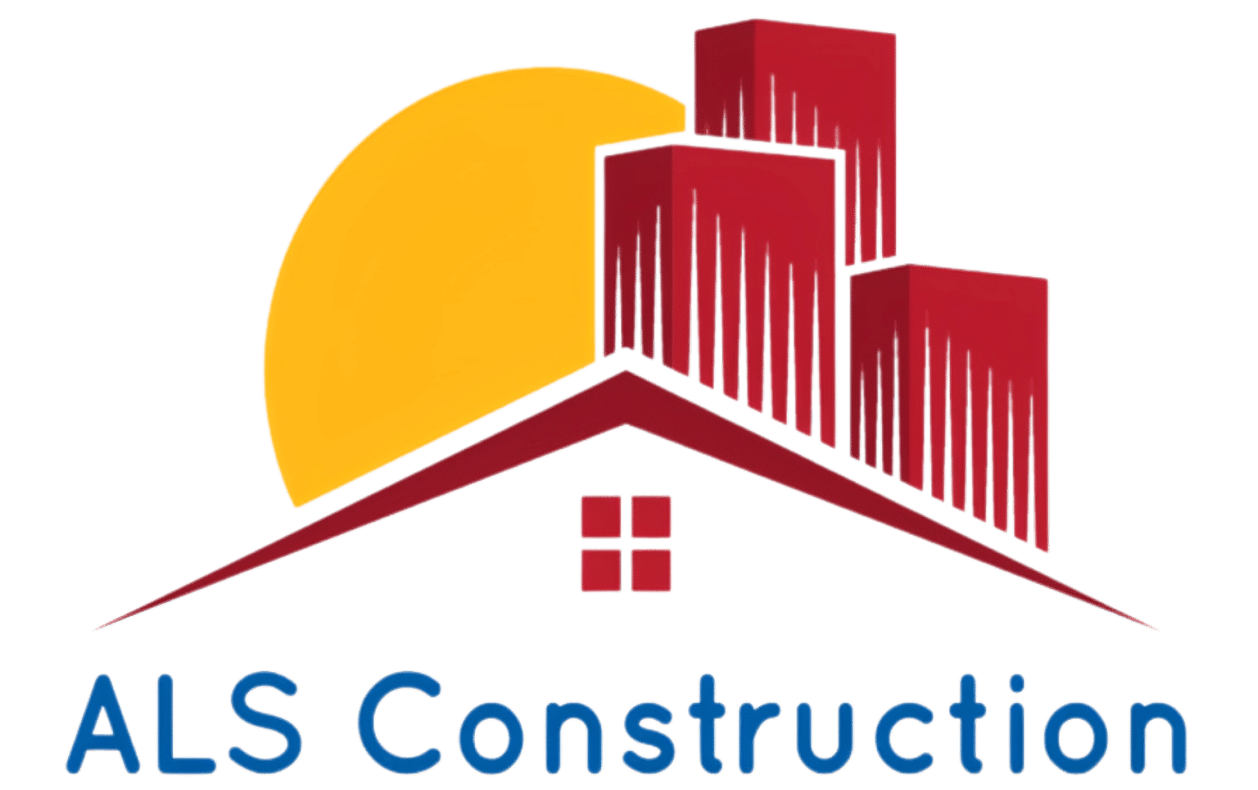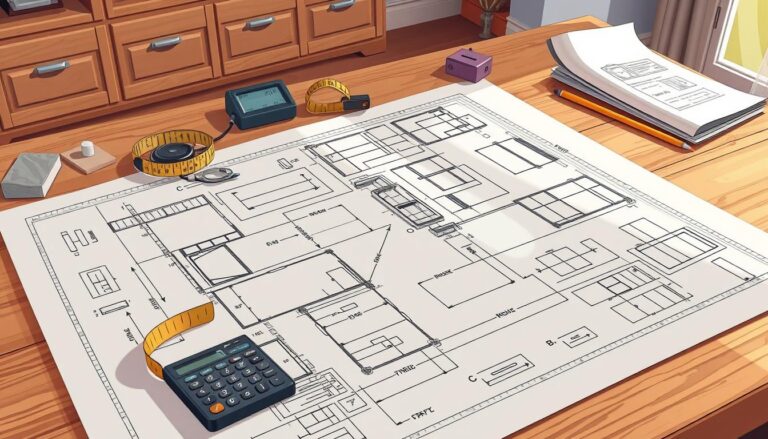Building a home is a big deal, and the price tag can change a lot. It doesn’t matter if you want a fancy custom home or something simpler. Knowing what affects the cost is key to planning your budget. We’ll look at the main things that can change how much a home costs in the US. This will give you the info you need to make smart choices.
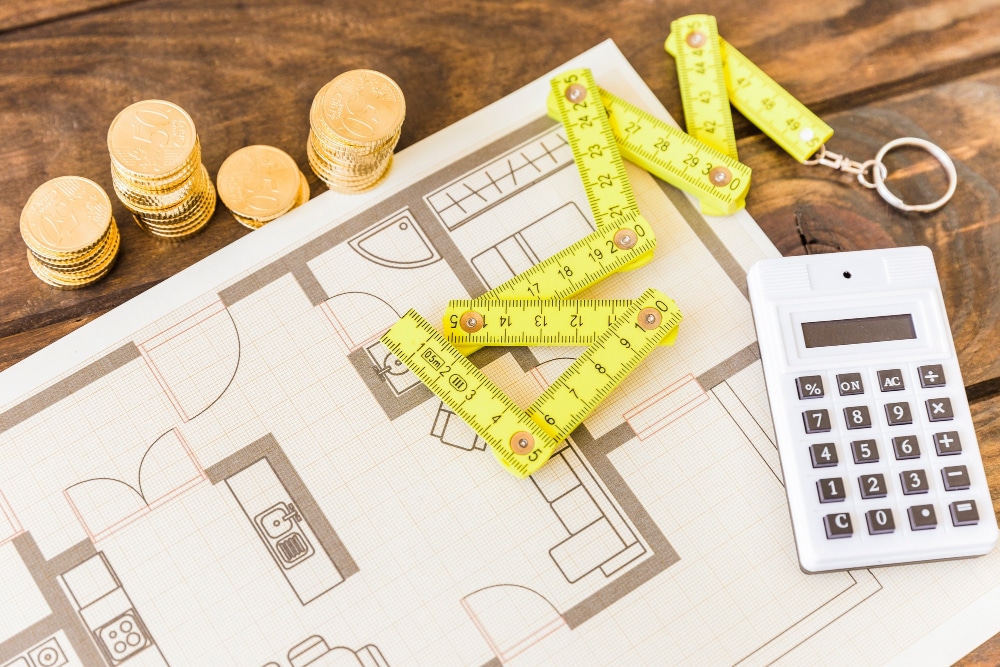
Things like buying land, preparing the site, designing the home, and picking materials all play a big role. Each step can add up and change the final cost. By understanding these costs, homeowners can get ready for what they’ll need to spend. They can also make choices that fit their budget and what they want in a home.
We’ll get into the details of home building costs next. We’ll talk about how prices vary by area, what custom homes cost, and how to budget and get financing. This will help you make your dream home a reality.
Understanding the Major Cost Factors in Home Construction
Building a new home is a big deal, and knowing what costs are key is essential. We’ll look at the main things that can raise the price of building a house. These include buying the land, preparing the site, designing the house, and getting permits.
Land Acquisition and Site Preparation
The land cost is often the biggest expense in building a home. Things like where the land is, how big it is, and the local market can change the price. Also, getting the land ready for building, like grading and setting up utilities, adds to the cost.
Architectural Design and Permitting
Getting a professional to design your home can save you money in the long run. It makes sure your home fits your needs and tastes. But, it does cost. Also, getting the right permits can increase the project cost. This is because different places have different rules and fees.
Knowing these main costs helps homeowners plan and budget better. This makes the building process smoother and more successful.
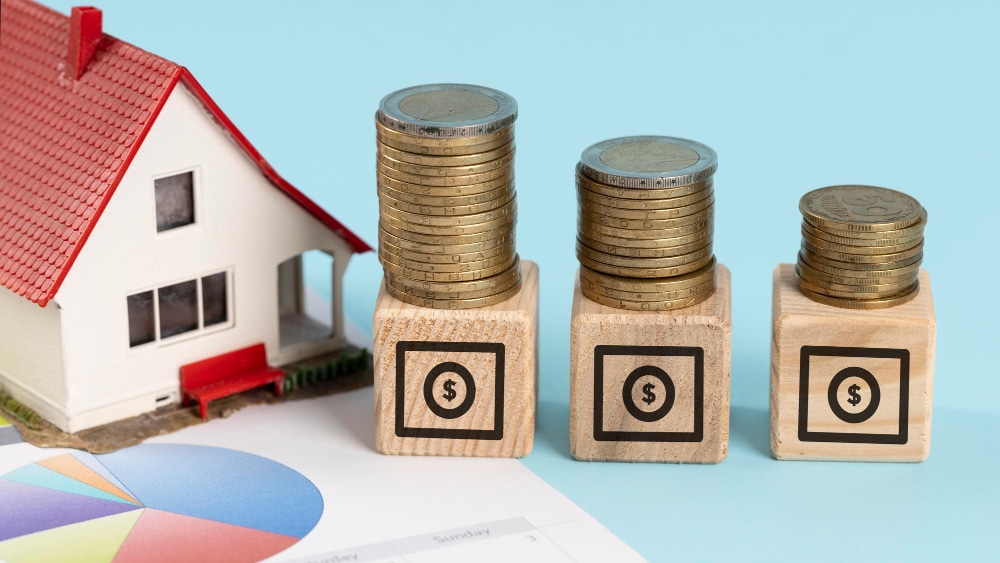
Breaking Down the cost to build home
Building a home is a big financial step. It’s important to know the different costs involved. We’ll look at material costs and labor expenses, which are key to the budget.
Material Costs: From Foundation to Finishes
The cost of materials for a home is high. It includes everything from the foundation to the final touches. Some major expenses are:
- Concrete and masonry for the foundation
- Lumber, drywall, and insulation for the framing
- Roofing materials such as shingles or tiles
- Plumbing and electrical supplies
- Flooring, cabinetry, and other interior finishes
The type of construction materials and their quality affect the material costs. Homeowners need to choose wisely to fit their budget and style.
Labor Expenses: Skilled Trades and Contractors
Along with material costs, labor expenses from skilled trades and contractor rates also add up. Key labor costs include:
- Excavation and site preparation by heavy equipment operators
- Framing and roofing by carpenters
- Electrical and plumbing work by licensed tradespeople
- Drywall installation and finishing by specialists
- Painting, flooring, and other finishing touches by skilled laborers
Homeowners should compare contractor rates locally. This helps ensure they get good prices for the labor expenses of their project.
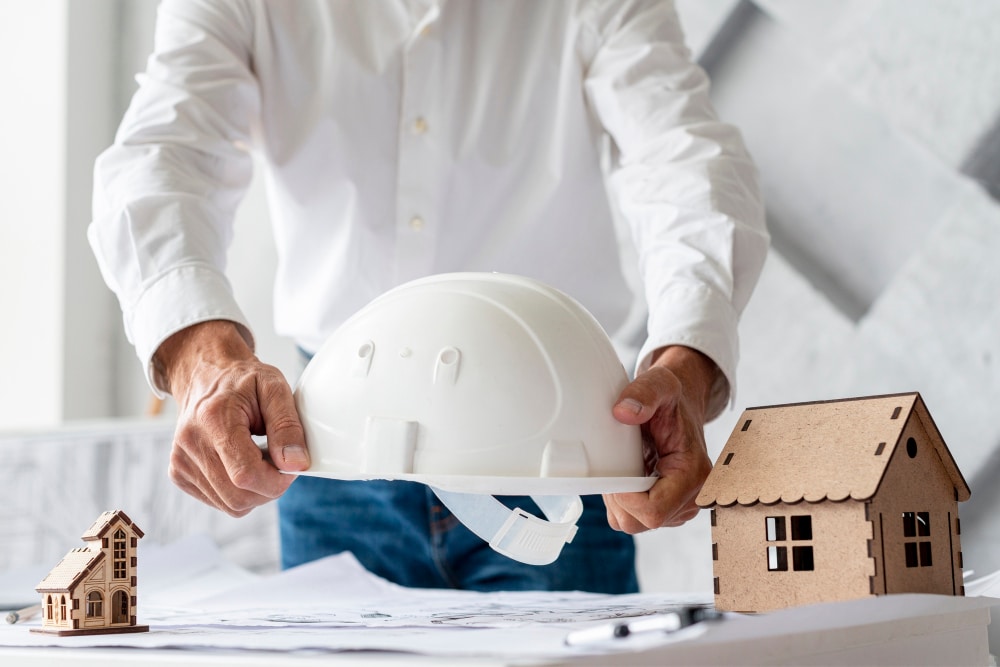
Knowing about material costs and labor expenses helps plan construction financing and homebuilding loans. This way, homeowners can make their dream home a reality within their budget.
Regional Variations and Custom Home Pricing
Geography greatly affects the cost of building a new home. The United States has different costs for building homes. Local materials, labor, and rules can change prices, even for the same design.
In the Northeast, building a home costs more than in the Midwest. This is because materials and skilled workers are pricier there. Custom homes also vary in price based on location. The more unique the home, the higher the cost.
| Region | Average Cost to Build a New Home | Factors Affecting Costs |
|---|---|---|
| Northeast | $300-$500 per square foot | Higher material costs Skilled labor shortages Stricter building codes and regulations |
| Midwest | $150-$300 per square foot | Lower material costs Abundant skilled labor Less stringent building requirements |
| Custom Homes | $300-$700+ per square foot | Unique design features High-end finishes and materials Site-specific requirements |
When planning your home budget, research regional costs and custom home expenses. Knowing these factors helps you make smart choices. This way, your dream home can fit your budget.
Conclusion: Budgeting for Your Dream Home
Building your dream home is exciting and rewarding. But, it needs careful financial planning. We’ve looked at what makes a home expensive, from buying land to paying for materials and labor. Knowing these costs helps homeowners plan a home construction budget that fits their money goals and schedule.
Finding the right construction financing and homebuilding loans is key. It helps manage the costs of your dream home. Working with trusted contractors and lenders makes the homebuilding process smoother and more affordable.
Getting your dream home means doing your homework, planning well, and working with experts. With a solid home construction budget, you can make your dream a reality. And, you’ll have a home to love for many years.
FAQ
What are the major factors that influence the cost to build a home?
The cost to build a home is influenced by several factors. These include the cost of the land and preparing the site. Also, the design of the home and getting the necessary permits play a role. Material and labor costs are also important. The location and whether you’re building a custom home can also affect the budget.
How much does it typically cost to build a new home in the United States?
In the United States, building a new home can cost between $100 and $400 per square foot. This translates to $250,000 to $500,000 for a typical single-family home. The actual cost depends on the location, size of the home, materials used, and how customized it is.
What are the major expenses associated with land acquisition and site preparation?
Buying the land and preparing the site can cost a lot. This includes the land price, surveying, grading, and installing utilities. These costs can be 10-20% of the total budget.
How much do architectural design and building permits typically cost?
Designing the home and getting permits can cost 5-15% of the budget. The complexity of the design, local fees, and the need for specialized engineers can affect these costs.
What are the primary material costs involved in home construction?
The main material costs are for the foundation, framing, roofing, siding, and more. Prices vary based on the products chosen and the region. These costs are a big part of the overall budget.
How do labor expenses factor into the overall cost to build a home?
Labor costs can be 40-60% of the budget. They cover the fees for electricians, plumbers, and carpenters. The availability of labor and the design complexity can impact these costs.
How do regional variations affect the cost to build a home?
Regional differences can greatly affect the cost of building a home. Local land prices, material availability, labor rates, and regulations can vary a lot. This leads to big differences in construction costs from one area to another.
What additional considerations are involved in building a custom home?
Building a custom home usually costs more than buying a production or semi-custom home. The unique design, customizations, and specialized tradespeople can increase the budget. This makes custom homes more expensive.
